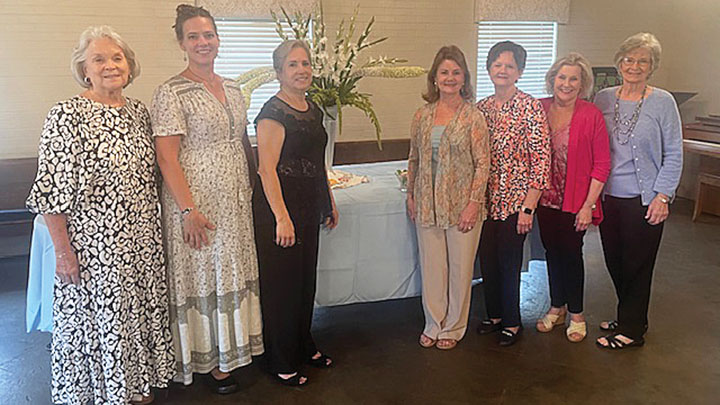Book looks beyond headlines of RFK poverty tour
Published 8:22 pm Monday, April 30, 2018
Ellen B. Meacham says when she set out to research and write a book about Democratic Sen. Robert F. Kennedy’s April 1967 tour of poverty-stricken areas of the Mississippi Delta, “I didn’t just want to write a story about ‘Saint Bobby Comes to Mississippi.’”
So, Meacham, a journalism instructor at the University of Mississippi, found and interviewed local people who were living in the places visited by the New York senator — Greenville, Cleveland and Clarksdale.
Her book, “Delta Epiphany: Robert F. Kennedy in Mississippi,” was published in mid-April by the University Press of Mississippi.
Trending
Kennedy was complex, and so were the people he met in the Delta. “I wanted very much to bring their stories into the light,” Meacham told The Associated Press in an interview Thursday.
The book provides context about the economic and political circumstances of the segregated state in 1967, including opposition by influential Democrats in the all-white Mississippi congressional delegation to federal programs designed to alleviate hunger among the poor. Mississippi’s non-white population was about 42 percent in the late 1960s, and poverty disproportionately affected African-Americans.
The Delta economy has long relied on farming, but mechanization and the development of pre-emergent herbicide, which killed weeds around cotton plants, saved money for farm owners but took jobs from tens of thousands of low-paid black laborers.
“There was this unfolding economic disaster that nobody was talking about. It was a population the size of Tupelo that was suddenly displaced and out of work,” Meacham said.
Kennedy was the father of 10 when he traveled to Mississippi, and his wife gave birth to their 11th child after he was assassinated while running for president in 1968. Meacham said Kennedy already had an interest in poverty before traveling South, but seeing the reality of hungry children in their own homes in the Delta made a deep impression.
“He couldn’t shake those images,” Meacham said. “It gave him a sense of urgency.”
Trending
At one home in Cleveland, Kennedy paused and stroked the cheek of an infant who was eating grains of rice off the floor. Through research and many conversations, Meacham found David White, who was that infant and who now lives in the Dallas suburb of Mesquite, Texas.
White told Meacham he has no memory of Kennedy’s visit, but he recalls how his mother stretched the family budget to feed her children, putting their needs before her own.
“She would say, ‘Y’all go ahead and eat first and I’ll eat whatever is left.’ I remember times she would just have a glass of milk and a piece of cornbread,” White says in the book.
If Kennedy were alive and could return to Mississippi today, Meacham said she thinks he would be pleased to see some improvement. Poor children receive free lunches at school, for example. However, while there is a more extensive social safety net now than in 1967, Meacham said: “It is fraying and it’s always under attack.”
She also said that in its 200-year history, “Mississippi has not taken the responsibility to provide quality education to all of its children.”
Meacham said some of the people Kennedy met on the poverty tour went on to thrive. “It is fair to say that their children never had to suffer the kind of hunger that they suffered.”
She said she is grateful to those who shared their stories: “I was very conscious that I was a white person telling the stories of people of color. … It’s such a compelling story that I hope I did it justice.”
Emily Wagster Pettus has covered Mississippi government and politics since 1994. Follow her on Twitter at EWagsterPettus.





